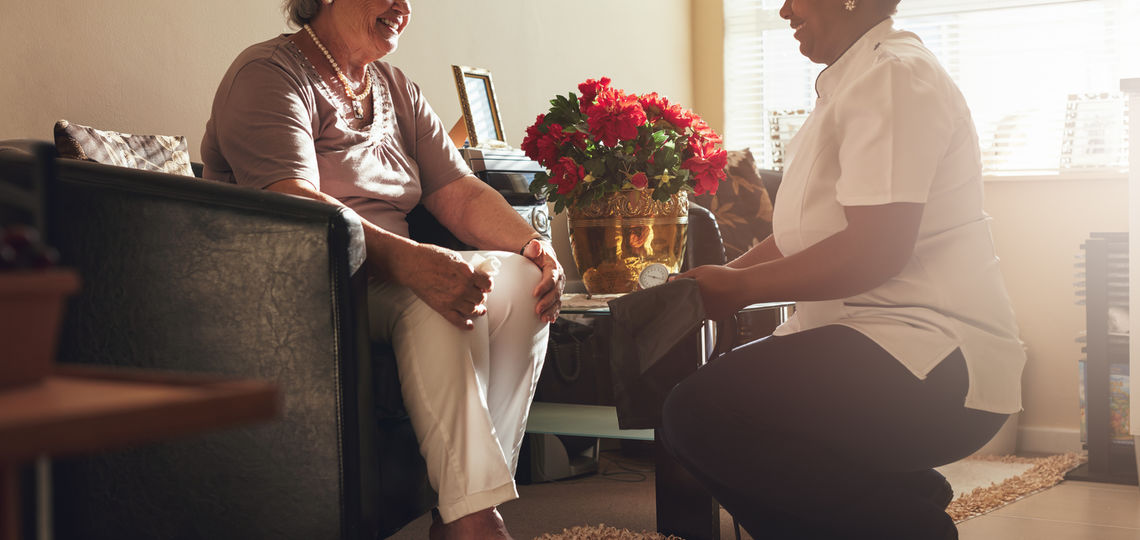
The Penn Roybal Center on Palliative Care in Dementia
The Penn Roybal Center on Palliative Care in Dementia seeks to transform residential palliative care for persons with dementia through behavioral economics and data science.
About
Created with support from a five-year grant from the National Institute on Aging to conduct translational research on aging populations, the Penn Roybal Center on Palliative Care in Dementia is one of 13 Roybal Centers in the nation. It is one of four such Centers studying dementia, and the only Center focused on palliative care for people living with dementia and their caregivers.
The Penn Roybal Center on Palliative Care in Dementia uniquely brings together behavioral and data scientists from the Penn Schools of Medicine, Nursing, Arts and Sciences, Wharton, and Engineering, and dementia experts from across the U.S., to develop and test novel interventions that bridge the dramatic gap between the supply of, and the need for, palliative care services among persons with dementia in long-term supports and services.
The Center will annually award funds for pilot studies conducted in real-world settings through an innovative partnership with Genesis HealthCare, the largest owner of nursing home facilities in the country. Awarded studies will be carried out in Genesis facilities with support from a multi-disciplinary team from Penn and Genesis.
Year 3 Pilot Program Request for Applications
Year 2 Pilots
This year, we prioritized projects that promote innovations in palliative care delivery and advance care planning in LTSS facilities in the context of the COVID-19 pandemic.
Katherine Courtright, Rebecca Ashare and Rinad Beidas's pilot is focused on improving tele-palliative care (TPC) interventions for people living with dementia in LTSS facilities. The COVID-19 pandemic necessitated the rapid implementation of TPC interventions in LTSS settings as LTSS residents are at high risk for hospitalization, critical illness, and mortality. However, uptake of TPC interventions has remained low despite this critical need. This study will use qualitative methods to examine barriers to adoption of TPC and assess stakeholder needs at two geographically and organizationally diverse LTSS systems with high rates of COVID-19. The team will use their findings to refine the TCP interventions and develop implementation strategies, informed by data science and behavioral economics, to improve uptake of the interventions.
Advance Care Planning (ACP) has particular relevance among persons with dementia (PWD) given the inevitable loss of capacity and ability to communicate. More often than not, it is the family members of PWD who engage in ACP activities. Unfortunately, family members frequently report lacking the information and support they need for ACP and medical decision-making. High rates of hospitalization, critical illness, and mortality among LTSS residents during the COVID-19 pandemic have highlighted the need for ACP in LTSS facilities. This pilot, proposed by Donald Sullivan and Joan Teno, will involve semi-structured interviews with family members and clinician stakeholders to develop an educational tool that includes prognosis and outcomes information to promote ACP. This family-centered tool will then be evaluated for acceptability and effectiveness.
Year 1 Pilots
PAIR faculty members Katherine Courtright and Gary Weissman's pilot uses network analysis and other data science techniques to identify clinician behaviors and social network positions that drive end-of-life care discussions and increase hospitalization risks and other outcomes among persons with dementia in long-term service and support facilities.
Penn School of Nursing faculty members Nancy Hodgson and Mary Ersek are developing and testing "Our Memory Care Wishes," an online advance care planning tool for use with dementia patients in long-term care facilities.
Events
March 2021: Penn Roybal Center on Palliative Care in Dementia Symposium
CHIBE&PAIR Roybal, 110719

We generate high-quality evidence to advance healthcare policies and practices that improve the lives of all people affected by serious illness.
Website designed & built by P'unk Avenue